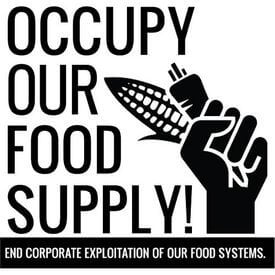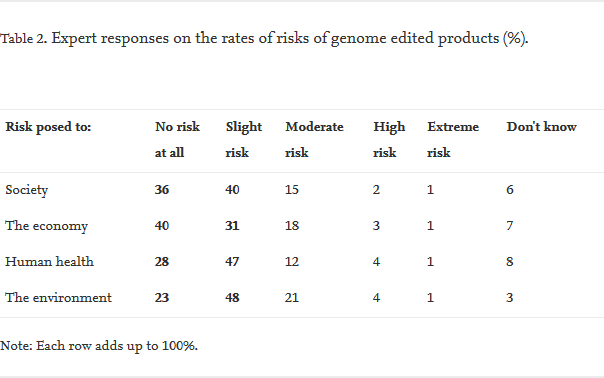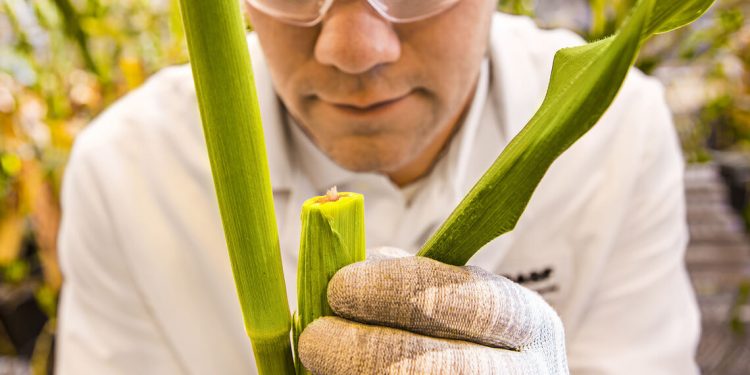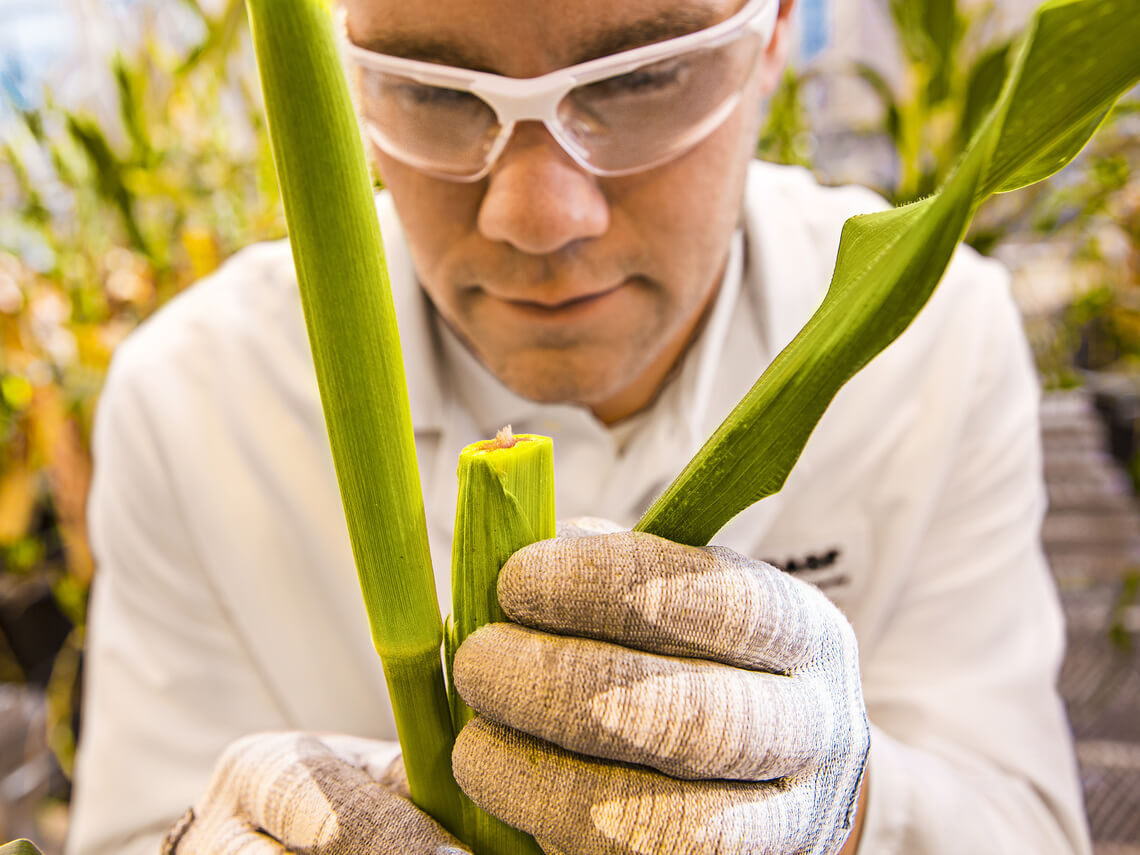[Fonte: GLP] It should come as no surprise that innovation is linked to uncertainty, especially when its effects are wide-ranging and can be difficult to quantify, as is the case for plant genome editing. Thus, scientific innovation should be conducted responsibly. Both regulators and companies seek ways to minimize inherent uncertainties regarding technological development. Risk assessment offers a basis to evaluate human, environmental and societal risks of fledging technologies and their application.
[Editor’s note: This article was excerpted from a study titled Risk and safety considerations of genome edited crops: Expert opinion.]
This paper describes a range of potential issues related to the safety of genome editing as identified through a survey of a consortium of international experts in plant biotechnology. A key finding is that genome edited crops pose marginal risk to the economy, human health and the environment. Yet, regulations governing biotechnology and some advocacy groups tend to discourage the use of new gene technologies in agriculture. In effect, discussions concerning the risks associated with genome editing, and targeted breeding techniques generally, are driven more by socio-political factors than by scientific principles.
The advent of targetable nucleases and the amalgamation of a number of scientific disciplines, has enabled scientists to develop a set of technologies that can alter an organism’s genome with greater accuracy and celerity. New plant breeding technologies (NBTs), including genome editing, provide technical and economic advantages over conventional breeding. In the face of mounting global food and fuel demands, the scarcity of water and land caused by global population growth, and the challenges climate change poses to agriculture, genome editing for crop improvement has tremendous potential.
The safety of genome editing depends, in part, on whether the changes are directed to predetermined sites (which would reduce or eliminate unintended changes, so-called off-target mutations) or to targets (which would eliminate unintended effects of the intended changes). The precision and efficiency of genome editing is expected to lower the frequency of some sources of unwanted downstream events, and therefore to yield fewer potential hazards at the product level.
Yet, for staple food crops with large and complex genomes, such as wheat, barley or maize, off-target editing is more likely to occur. Similar to varieties derived from chemical or radiation mutagenesis, unexpected risks and negative externalities (i.e. potential harm to human health and the environment) cannot be ruled out. The current knowledge about the safety of genome editing in plants is relatively limited.
The role of advocacy groups

Advocacy groups are actively engaged in debates about emerging technologies. The commercialization of GM crops has been especially controversial, with social development and environmental organizations questioning not only safety but a spectrum of issues including ethics, monopoly ownership, and corporate control of crop varieties and the food chain, consumers’ and farmers’ right to know, and the nuances around coexistence of various agricultural practices.
While some non-governmental organizations’ (NGOs) opposition to GM foods and crops is grounded in strongly-based values and beliefs, NGO skepticism towards agricultural biotechnology has transformed into a more complex socio-political phenomenon, with emotion balanced with power struggles and commercial gain. Different motives generated different responses.
Helliwell, Hartley engaged members of NGOs opposed to genome editing as a potential tool to guarantee food security and found their opposition to the technology is rooted in the frames through which they analyze the technology, and even the problem it sets out to address. Specifically, they first questioned why the problem is defined as a lack of food rather than a lack of access to food. Second, they questioned whether further entrenching intensive agriculture through science and technology can address political and socio-economic inequalities. Third, they wondered about the motivations for removing genome editing from GM regulations.
In other words, scientists, political stakeholders, and NGO members are looking at the same problem and technology, but through different frames. No matter how much agricultural biotechnology is discussed, a harmonized understanding on the technology can never be reached if the framing of the issue is different. A promising starting point towards a harmonized understanding on genome editing is the characterization of risk that the use of this technology entails.
This paper presents expert opinion regarding potential risks of using genome editing in agriculture. It reports the results of a survey in which a pool of international scientists and professionals involved in plant biotechnology were asked to describe the risks they believe genome edited crops could present in the environment, the economy, and for human safety.
Though the technologies are different, genome editing comes into a world already shaped by genetic modification (GM). The survey also provides views on the role of biotechnology regulations and advocacy groups in promoting or impeding the use of targeted breeding in agriculture. There is significant evidence that the success of the new wave of technologies is much more a matter of socio-political considerations than technological competitiveness.
Method
An online survey was conducted between May and September 2018 to gather expert opinions on the potential safety issues surrounding NBTs, including genome editing. The survey was emailed to a panel of 487 international experts (scientists, government officials, agribusiness professionals, etc.) with related backgrounds and experiences in biotechnology.

The survey instrument is part of a multi-year survey project investigating expert opinions regarding the opportunities and challenges on the application of NBTs and their potential to enhance global food security. The expert panel was obtained from a contact database that was created using emails of participants for several conferences on biotechnology organized by the researchers over the past 15 years, and of experts from online searches (i.e. websites of universities, research institutions, biotech companies and government agencies). In October 2015, an introductory recruitment effort involved contacting by email >4000 individuals and soliciting their participation. Those that enrolled in the research panel (N = 720) provided socio-demographic information and answers to a series of decision-making questions. The survey was completed by 113 participants, resulting in a response rate of 23%.
Previous surveys covered different topics including: the top ranked NBTs for improving food security, regulatory uncertainty surrounding NBTs, costs of genome editing crops, and related benefits . As the survey topics varied, prospective panelists were not required to answer every survey. Expert opinions and judgments have been widely used to inform policy-related decision making, particularly for uncertain events where empirical data are lacking, and for emerging, complex and ill-understood problems. Unlike lay public, experts are deemed most likely to offer insights into future events as they hold certain knowledge or extensive scientific information on specific subjects.
As identified above, genome editing can yield either transgenic or non-transgenic outcomes. Results of previous surveys within this project that experts agree that some genome edited crops are transgenic and thus should be regulated as GM technology while those free from exogenous genetic material should not.
Experts in this study were asked about the safety of genome editing. Table 2 shows the majority of experts consider that genome edited crops pose little to no risk to society (76%), the economy (71%), human health (75%) and the environment (71%). Less than a quarter of the sample believe that such crops present a moderate risk, compared to <5% who think they pose a high risk. One expert commented: “[risk] depends on the characteristics of the product and its intended use. In many cases for plants, there may be no/negligible risk (equivalent to conventional breeding), but in some cases risk may need to be assessed (case by case).”

Overall, 51% of experts think that biotech regulation in their country moderately or completely discourages the use of gene editing in crop development. Close to one-quarter of the sample expressed a neutral opinion. Expertise is shown to have no effect on opinion regarding whether biotech regulation encourages the use of genome editing in plant breeding. While a plurality of European participants (25%) indicated that biotech regulation in their country completely or moderately discourages the use of genome editing, a plurality of NA respondents (28%) point out that their regulation moderately discourages or has no effect on the use of genome editing.
Results show that 64% of respondents believe that advocacy groups completely or moderately discourage the use of genome editing in agriculture in their region, regardless of their expertise or where they live. However, some experts are more encouraged, with a plurality believing some advocacy groups offer a little or moderate support for the use of genome editing in their country.
Conclusion
The majority of experts surveyed conclusively agree genome editing poses no significant risks to the economy, environment, human health or society. This sample of experts thought existing national regulations work to discourage genome editing in many countries; a view that was strongly held in Europe.
The current generation of genomic technologies, including genome editing, challenges existing precautionary-based governance approaches. The 2018 CJEU ruling on mutagenesis and the resulting experts’ reaction reflect such challenges. A number of EU states are calling for a coalition to update the EU GM legislation with regards to NBTs.
This signals that respective regulatory systems are dysfunctional as they do not support advancement of innovative plant breeding. Our expert panel suggest this is because discussions concerning the risks associated with genome editing, and targeted breeding techniques generally, are driven more by socio-political factors than by scientific principles.
While the experts in this survey overwhelmingly support the safety of genome editing and the resulting products, they also acknowledge that rigid adherence to science-based regulatory frameworks will not facilitate the commercialization of future innovations.
Experts are aware of the ‘pushback’ coming from environmental NGOs (eNGOs) opposed to the use of new genomics tools in crop breeding. This opposition is based on speculative risks, those that have no established theory or evident data. The challenge of attempting to reconcile speculative risks with risks grounded in theory and evidence, is that speculative risks can be very fluid and dynamic, changing at will and frequently at the whim of eNGO political motives.
The challenge of incorporating socio-economic considerations (SECs) is that many of the eNGOs advocating them argue that they must be assessed from a zero risk perspective, that is, if any one individual is made worse off, then the innovation in question should be rejected. Additionally, many of the SECs are included in the present global risk assessment framework developed by the OECD and to explicitly remove them from science-based risk assessment methodologies would simply be a duplication of effort and add needless costs to the risk assessment process.
The lack of rigorous methodologies and consensus on factors of inclusion create high levels of uncertainty, which is negatively correlated to innovation investment. As an example, there is no globally accepted definition on how to measure improvements in food security, the leading SEC factor survey experts identified could be included in the risk assessment process.
One of the consistent impacts of innovations is that they create ‘winners’ and so-called ‘losers’, those that do not, or will not, adopt. The concern about including SECs into a science-based regulatory system is this results in a rigorous application of the precautionary principle, raising commercialization uncertainties beyond acceptable levels, driving R&D investments to other jurisdictions that regulate solely on science-based frameworks. The EU has tried to integrate SECs into their regulatory framework, with the result being one GM crop approval since 2003. This is not the record of success that is going to reduce food insecurity, or contribute to the global acceptance of genome editing technologies.
Rim Lassoued is a professor in the Department of Agricultural and Resource Economics at the University of Saskatchewan. Follow the department on Twitter @SAIFood_blog
This study originally ran at Current Research in Biotechnology as Risk and safety considerations of genome edited crops: Expert opinion and has been excerpted here with permission.
Rim Lassoued | October 14, 2019





















































Discussão sobre este post